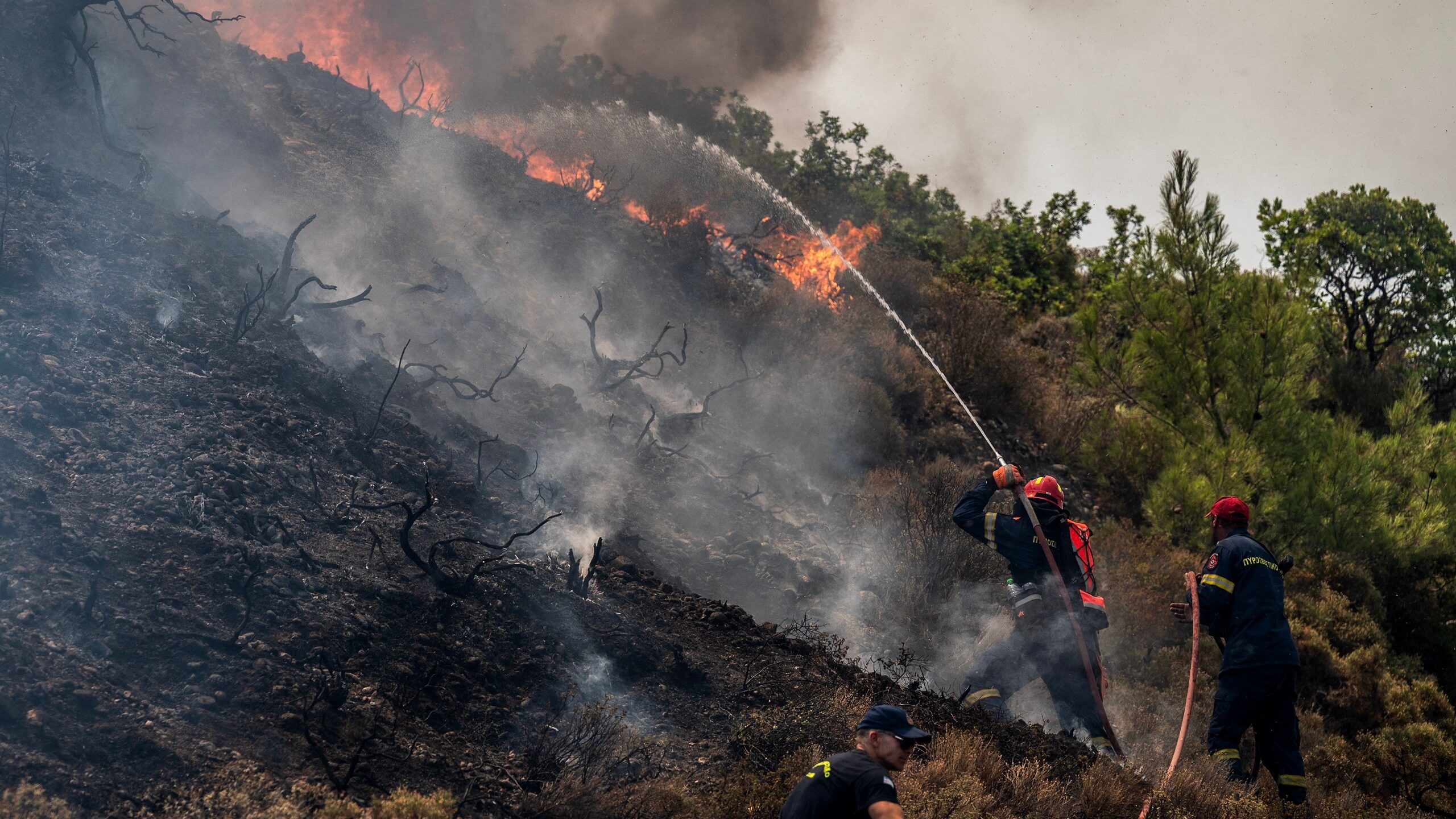Mediterranean Nations, US, Meet in Israel To Discuss Wildfires, Climate Change
Representatives from Greece, Italy, and Turkey, as well as from the United States, come together to share their experiences and know-how in dealing with wildfires and climate change challenges
With unprecedented wildfires raging across the Mediterranean region and North America this summer, representatives from several Mediterranean countries and from the United States came together in Israel recently to share their experiences and discuss cooperation in facing the challenges of climate change.
Representatives from Greece, Italy, and Turkey, as well as from the US, were among those who attended the forum, which was initiated by Keren Kayemeth LeIsrael – Jewish National Fund (KKL-JNF).
These larger fires are not just dangerous and risky for the people that live around forest communities, but also on a national scale
Anthony Davis, dean of the College of Life Sciences and Agriculture at the University of New Hampshire, said the United States and Canada were experiencing earlier starts to their wildfire seasons and much bigger fires, often termed mega-fires. Last month, such fires burned an area of Canada bigger than the Netherlands, with a severe impact on ecosystems and air quality in many cities in Canada and the United States.
“These larger fires are not just dangerous and risky for the people that live around forest communities, but also on a national scale, with the quality of air being decreased by the heavy smoke intensity,” Davis told The Media Line.
In Europe, large wildfires have become more common in recent years in many Mediterranean nations, and this summer have struck Spain, Italy, and Greece. This week, fires on the popular Greek vacation island of Rhodes burned several resorts and necessitated the evacuation of some 19,000 tourists.
Veronica Louka, a forester with the Greek Environment and Energy Ministry’s General Directorate for Forests, told The Media Line that Greece had learned lessons about rehabilitating forests from its previous experiences with fires.
“I think that we have made big progress regarding post-fire treatment since we had huge forest fires in Greece [in] past years,” she said.
She said the effects of such fires were not only ecological but also social and economic.
“People there lived in the forest, and they had their income through the forest. They were beekeepers, they were raising the collectors from the trees. They were shepherds. They were agriculturists. So, in this way, we had to do everything possible,” she said.
Lin Dror, international project manager for KKL-JNF, told The Media Line that Mediterranean countries going through similar experiences had decided to stop dealing with the issues alone and share their know-how with each other.
“We always talk globally about climate change and the effects of climate change and how we deal with it. But we never had a real conversation in the area in the region, the Mediterranean countries,” Dror said.
“We started talking about gathering everybody together to talk about the challenges, opportunities, and solutions for the climate crisis. And that’s how we came up with this idea to have everyone here in Israel talk about it together.”
Dror said that while every country implements its own solutions, sharing them with others would help all of them to manage climate challenges better.
We have these common problems, especially forest fires, desertification, and drought. So being here with a group of people from Mediterranean countries is very important
Ismail Belen, chief inspector for the Turkish Agriculture and Forests Ministry’s General Directorate of Forests and vice chairman of the United Nations Forum on Forests, said that Mediterranean countries should take advantage of the fact that their climate change challenges are similar.
“We have these common problems, especially forest fires, desertification, and drought. So being here with a group of people from Mediterranean countries is very important,” he told The Media Line.
And Davis said: “One of the challenges we face is that as we look at climate change, we see differences in how forests behave and differences in how people are also using forests. To address that we need more research, we need to connect the solutions that we find from all the different parts of the globe that face forest fires, and do that by sharing knowledge and creating new knowledge.”
Those who attended the forum said they were eager to encourage greater regional cooperation on climate change issues.
“I’m planning to have more friends from Israel, and from other countries or the Mediterranean region, then I will share my experiences with my colleagues from the forestry sector, from the ministry, or from the private sector. … Then, if I can manage, I am going to prepare some special projects for cooperation in this region,” Belen said.
And Louka said: “We are here to learn and to give … and we think this is the beginning and not the end of our collaboration.”


